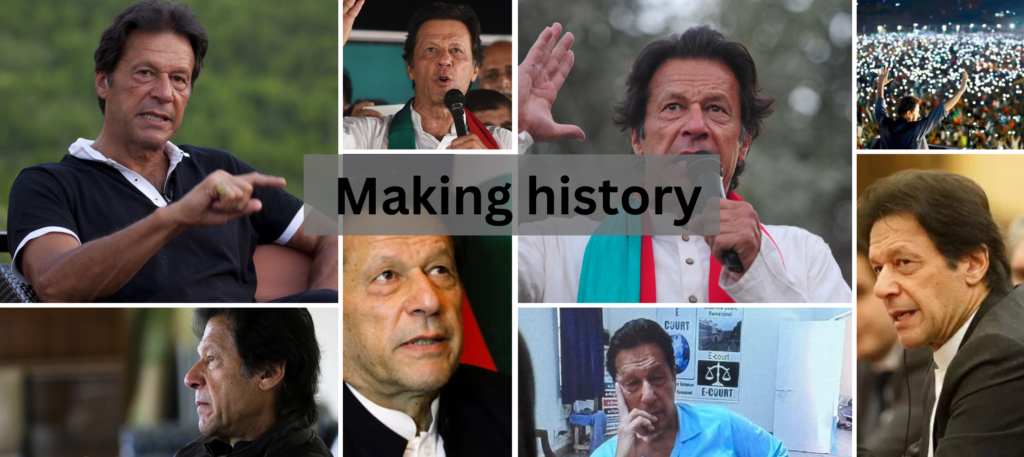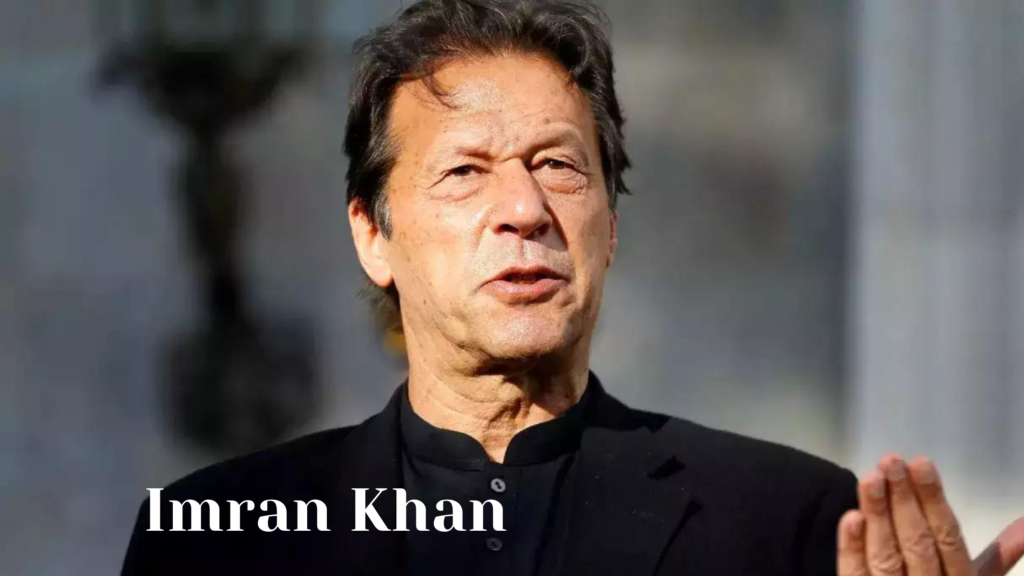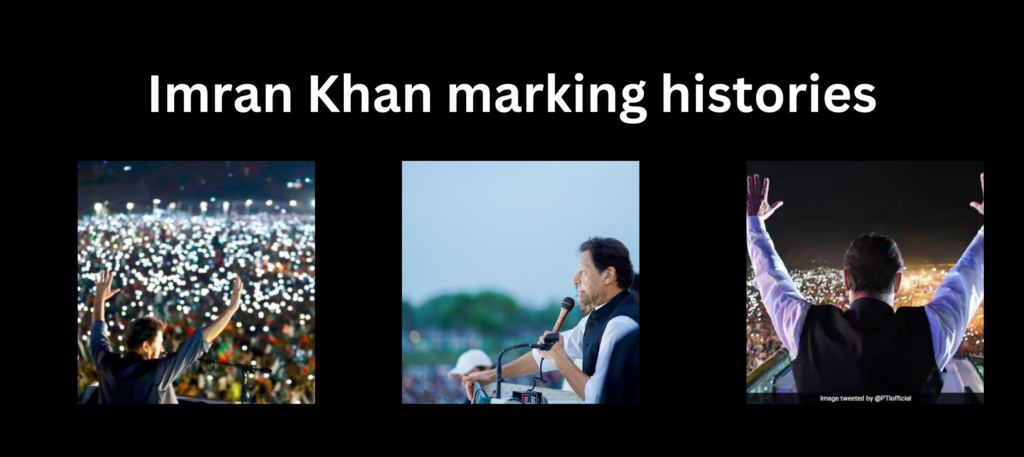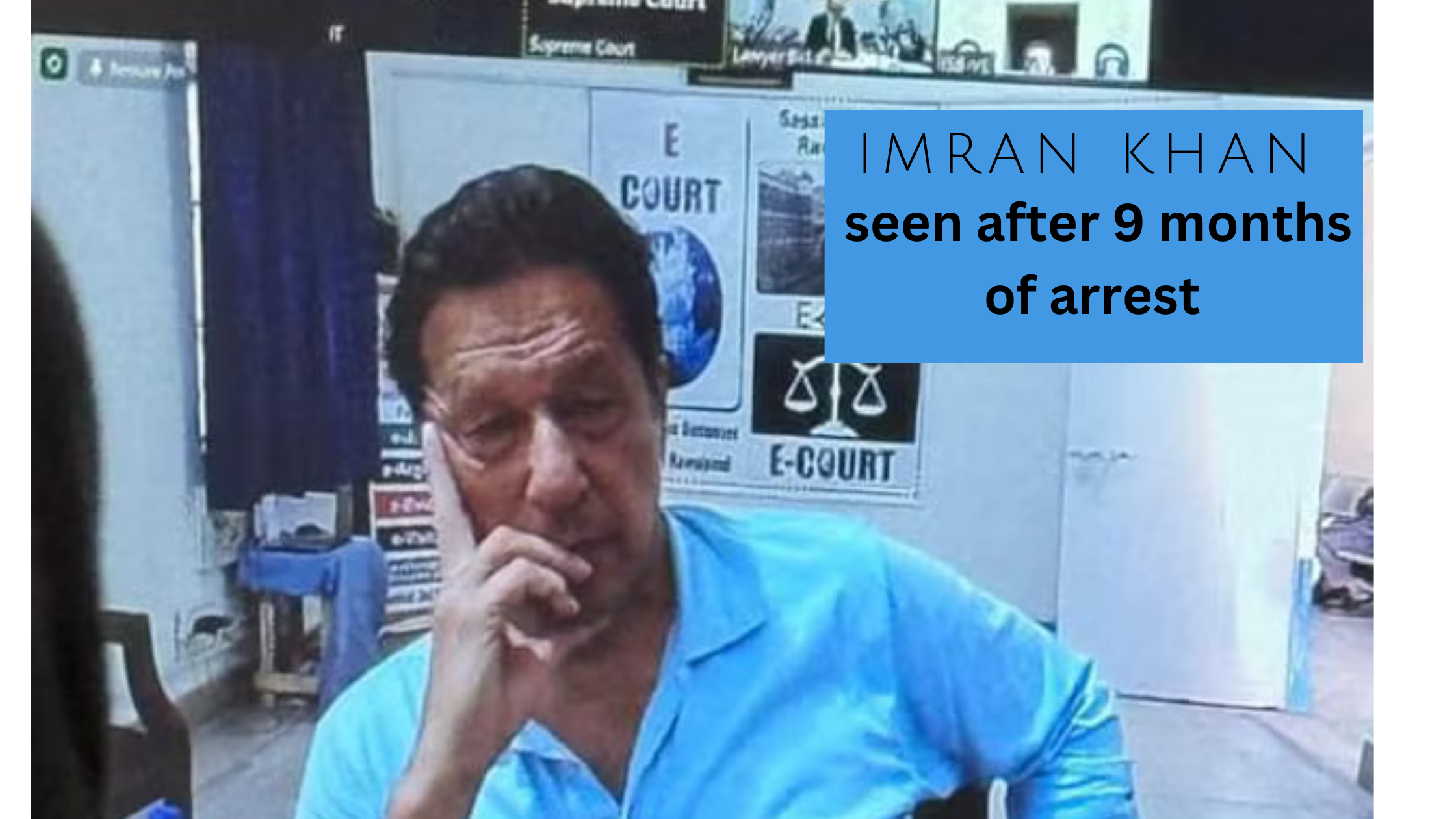In the perplexing universe of Pakistani governmental issues, barely any figures loom as extensive as Imran Khan. From cricketing legend to magnetic government official, Khan’s process has been pretty much as emotional as it has been dubious. Nonetheless, the momentum section in his political adventure finds him exploring violent waters, confronting difficulties both inside his party and on the more extensive political scene.
Imran Khan rose to global distinction as a cricketing symbol, driving Pakistan to its solitary Cricket World Cup triumph in 1992. Following his retirement from cricket, he wandered into generosity and at last into governmental issues, establishing the Pakistan Tehreek-e-Insaf (PTI) party in 1996 with the point of battling debasement and achieving financial changes. Following quite a while of political battle, Khan’s PTI gotten a notable triumph in the 2018 general decisions, promising another period of administration set apart by straightforwardness, responsibility, and flourishing. Notwithstanding, almost six years into his residency as State leader, Khan winds up wrestling with a heap of difficulties.

Perhaps of the most major problem confronting Imran Khan is the disintegrating economy. Pakistan’s economy has been tormented by expansion, joblessness, and a developing obligation emergency. Regardless of Khan’s endeavors to carry out changes, including looking for monetary help from worldwide accomplices, the circumstance stays critical, stressing the occupations of conventional Pakistanis and disintegrating trust in his administration’s capacity to follow through on its commitments.
In addition, Khan’s administration has gone under examination for its treatment of the Coronavirus pandemic. Pundits blame the public authority for blunder and an absence of a rational procedure in containing the infection and moderating its financial effect. With medical care frameworks overpowered and inoculation endeavors confronting obstacles, Khan faces mounting strain to guide the country through this uncommon emergency.

Inside, Khan’s party has been assailed by factionalism and contradiction. Late surrenders and inward breaks have brought up issues about the solidarity and attachment of the PTI, taking steps to sabotage Khan’s hold on power and his capacity to institute his plan. Moreover, allegations of tyrant propensities and endeavors to smother disagree have spoiled Khan’s appearance as a boss of a majority rules system and responsibility.
On the international strategy front, Khan’s residency has been set apart by a fragile difficult exercise, especially in exploring relations with the US, China, and adjoining India. While Khan has tried to fortify binds with customary partners and manufacture new organizations, international strains and provincial contentions have convoluted Pakistan’s international strategy math, presenting difficulties to Khan’s vision of a tranquil and prosperous South Asia. In spite of these difficulties, Imran Khan stays an imposing political power in Pakistan. His mystique, libertarian allure, and assurance to change the nation keep on resounding with numerous Pakistanis frustrated with the state of affairs. Nonetheless, whether Khan can make an interpretation of his vision into substantial results stays unsure, as he wrestles with the imposing errand of directing Pakistan through violent waters.

All in all, Imran Khan’s ongoing circumstance mirrors the intricacies and difficulties inborn in Pakistani legislative issues. As he explores monetary hardships, inner dispute, and international strategy predicaments, Khan’s initiative will be scrutinized. Whether he can adapt to the situation and lead Pakistan towards a more promising time to come is not yet clear, however one thing is sure: the excursion ahead will be loaded with obstructions and vulnerabilities.



